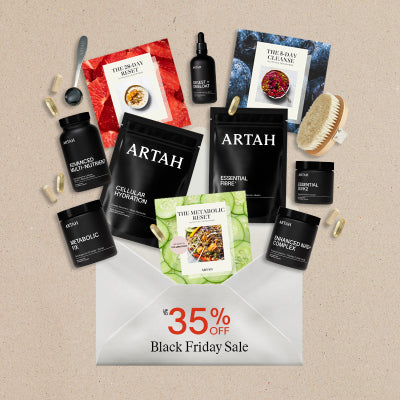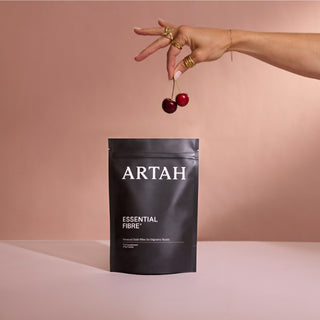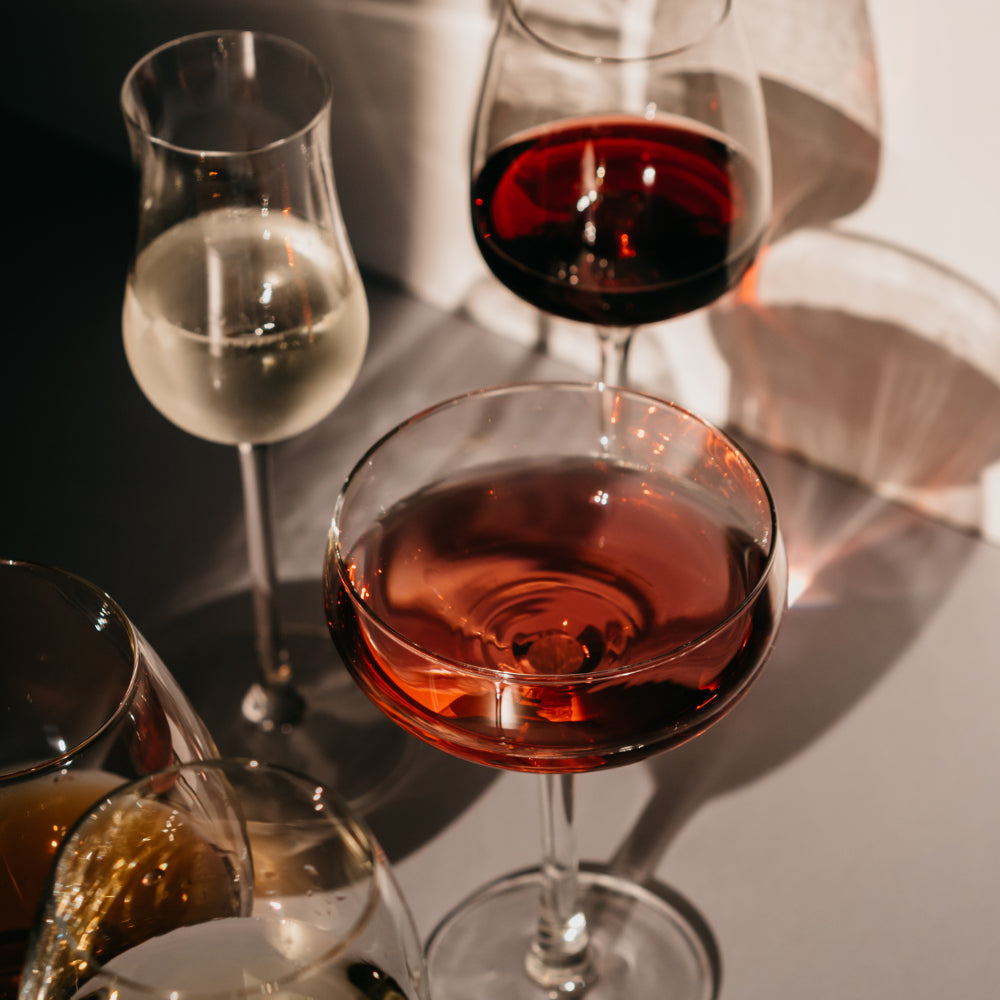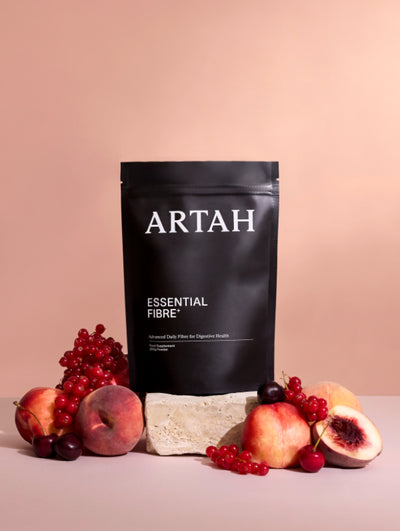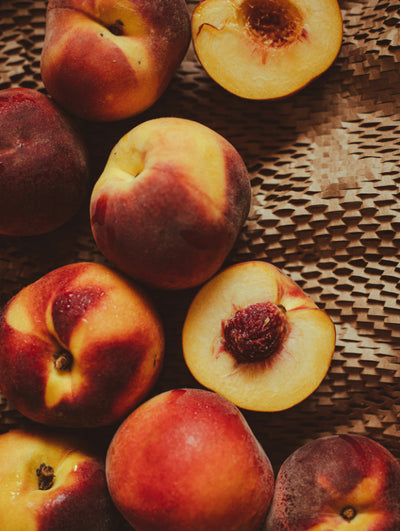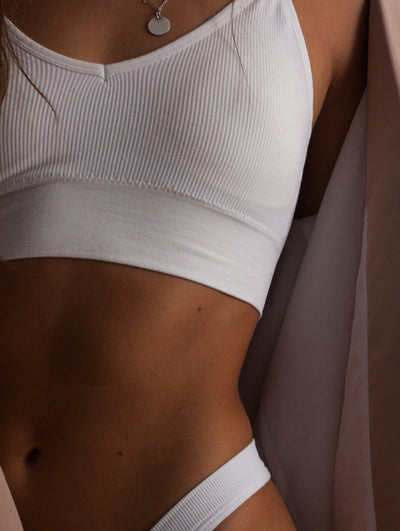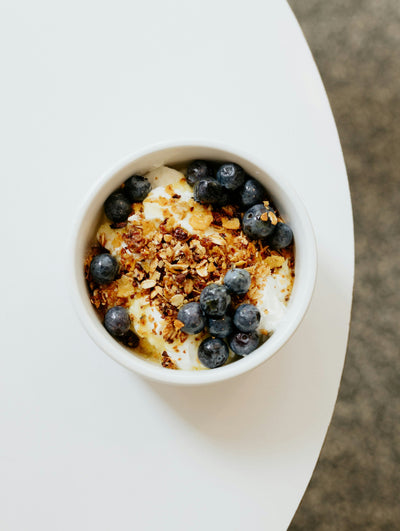From dehydration and blood sugar crashes to inflammation and disrupted sleep, the symptoms of a hangover can hit hard - and often leave us wondering if it was all worth it. There’s only one way to avoid a hangover entirely, which is to not drink. But, for the times you want to enjoy a few glasses with family and friends, there are some simple hacks that may significantly reduce your chances of waking up feeling awful the next day. Here are 7 things to try to ease your hangover.
1. Drink a Glass of Water Between Each Drink
Alcohol is a diuretic, which means it promotes urine production. With the increase in urine output also comes an increase in electrolyte loss, which leads to one of the most common symptoms of a hangover - dehydration. In turn, dehydration can worsen other hangover symptoms like headaches, fatigue, anxiety, insomnia and dizziness. So, it’s important to take a proactive approach. Drinking water between alcoholic beverages can help replenish fluids, maintain better hydration, and slow the pace at which you drink alcohol, which can lessen the chance of overdoing it.
2. Eat Fibre rich, Complex Carbohydrates Before You Go Out
Insoluble fibre turns into a gel in our gut, which can slow the absorption of several nutrients, including alcohol. Beans and lentils are our top picks (think white, butter, edamame, black, and dal), and wholegrains like brown rice, quinoa, millet, oats, and rye will also do the trick. Fruit and vegetables also contain soluble fibre - try sweet potatoes, which are also rich in potassium, peas, green beans, avocado, apples and pears.
3. Protect the Liver
When we know we have a busy calendar of social events that will involve drinking, we always look for liver support. One of the best botanicals for this is Milk thistle, which helps to stimulate the production of glutathione, a critical antioxidant in the liver, and can protect the liver against alcohol induced inflammation. (1) Glutathione plays a key role in detoxifying harmful substances and protecting liver cells from damage and is a key molecule in the metabolism of alcohol. Where to find it? You can get Milk Thistle as a tea and drink multiple times per day throughout a heavy period. We also love Deep Detox, a formula containing a powerful punch of Milk Thistle alongside antioxidants and amino acids that support the liver and enhance the body’s natural detoxification pathways. This formula also contains N-acetyl Cysteine to support detoxification and boost glutathione production, Alpha-Lipoic Acid, our universal antioxidant, and Turmeric, which has hepatoprotective properties. (2)
4. Electrolytes Before Bedtime and Upon Waking
Electrolytes play a crucial role in managing some of the symptoms of hangovers. Due to the diuretic effect of alcohol, drinking causes us to lose important electrolytes like sodium, potassium, calcium, and magnesium, all which are essential for things like muscle function, nerve signaling, cognitive function, mood and fluid balance. Replenishing electrolytes with Cellular Hydration before bed and upon rising can support a quicker, less painful recovery.
5. Eat Your Vitamin C Before and After
Vitamin C gets depleted when we drink, and the body has no way of storing this essential antioxidant-vitamin. Drinking increases oxidative stress in the body, and Vitamin C’s powerful antioxidant activity can help combat free radicals generated by alcohol and also supports detoxification pathways in the liver. Our favourite Vitamin C foods include bell peppers, broccoli, kiwi, grapefruit, Brussel sprouts, and oranges.
6. Try to Avoid Dips in Blood Sugar
Alcohol can exacerbate fluctuations in blood sugar, both during the night and the next morning. Try having a protein snack before bed, especially if you've been drinking with little food; it won't prevent a hangover, but it can help mitigate some of the swings in blood sugar that we’re predisposed to after a night of drinking. Protein can help stabilise blood sugar by slowing down the absorption of alcohol and promoting a steady release of glucose into the bloodstream, so look for protein options when you're eating out or load up before you go. A bonus of this can be that it may help manage alcohol intake; by slowing down inebriation, we can be more mindful of what we consume. If it’s too difficult to do before bed, try a protein rich breakfast the next day. Alcohol can cause blood sugar levels to drop, which is both a symptom of a hangover and something that can exacerbate other symptoms, so this one is a must.
7. Whenever You Can, Choose Cleaner Drinks
By now, we’ve probably all been told to avoid sugary cocktails because the aftereffects of alcohol will be exacerbated by the excess sugar (think gut, mood, appetite). So if you’ve already nailed that tip, it’s time to clean up your wine. White wine is often touted as being ‘full of sugar’ - but in all honesty, the grape and variety has more impact than the category as a whole. Dry red and white wines usually contain less than 10g/l, whereas sweet red and white wines can hit 50g/l - white can be up to 10g per glass. Opting for dry wines over medium or sweeter wines will have a little less sugar, and whenever you can, look for natural wines. Natural wines can be a fantastic way to minimise some of the effects of alcoholic drinks. They tend to have less sugar because of the fermentation process, and will have avoided exposure to pesticides, added Sulphur dioxide, and are free from the over 100 additives that are legally permitted in wine. Alcohol isn't subject to the same labelling requirements as food is, so when we drink regular wine, we can consume a whole host of chemicals that we don't know about. This can be one of the reasons why some wines can make us feel so horrible (especially for those of us who are sensitive). All wine will have some degree of sulphites, but unless it is a natural, biodynamic wine, it will also have added sulphites. Finally, for those who are sensitive to histamine, a dry, biodynamic white wine may be a better choice.
As a final note on alcohol, perhaps one of the best things we can do for our health is to learn to approach alcohol in a balanced, moderate way. The World Health Organization states there is no safe amount of alcohol to consume that does not impact health (3), so any tips or tools presented in this article or any others, will not remove the risk associated with drinking. If you think you or a loved one has an unhealthy relationship with alcohol, it’s important to seek professional support.

References:
- https://doi.org/10.1016/j.tiv.2022.105330
- Khan H, Ullah H, Nabavi SM. Mechanistic insights of hepatoprotective effects of curcumin: Therapeutic updates and future prospects. Food Chem Toxicol. 2019 Feb;124:182-191. doi: 10.1016/j.fct.2018.12.002. Epub 2018 Dec 5. PMID: 30529260.
- Anderson BO, Berdzuli N, Ilbawi A, Kestel D, Kluge HP, Krech R, Mikkelsen B, Neufeld M, Poznyak V, Rekve D, Slama S, Tello J, Ferreira-Borges C. Health and cancer risks associated with low levels of alcohol consumption. Lancet Public Health. 2023 Jan;8(1):e6-e7. doi: 10.1016/S2468-2667(22)00317-6. PMID: 36603913.
Disclaimer: The information presented in this article is for educational purposes only and is not intended to diagnose, prevent, or treat any medical or psychological conditions. The information is not intended as medical advice, nor should it replace the advice from a doctor or qualified healthcare professional. Please do not stop, adjust, or modify your dose of any prescribed medications without the direct supervision of your healthcare practitioner.








































